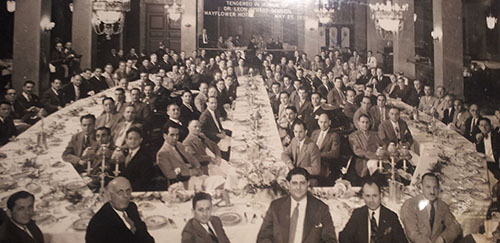There are times when I look around at myself and the life I have — 26, working at a rapidly-growing company, building cool stuff with a really awesome team — and I manage to convince myself that I am absolutely nowhere.
I look around, and all I see are people going places, and I don’t see myself doing the same.
I feel stuck in the mud.
And then I ask myself question that everyone asks at some point: What should I do with my life?
It is a big, scary question.
I’d like to think that my grandparents asked themselves that question. One grandpa became a doctor, and the other became a pharmacist, and that was their life’s work. They picked a life and stuck with it.
But thanks to a few factors — for me, it’s hard work, a bit of luck, the comfort of a few dollars in the bank, and the way the internet has changed everything about how people make and share things — I don’t see one path. I don’t see one life.
I see many paths, and many lives.
There is a wonderful anecdote in the autobiography of Katharine Graham, the longtime Washington Post publisher. She talks about her father, Eugene Meyer. He started out as a businessman. Then he transitioned to a life in government — he served as the chairman of the Fed, and later the first president of the World Bank. Then he bought the Post. Then he got into community service. And finally, towards retirement, he pushed himself into family life.
Graham writes about these stages as the arcs of Meyer’s life. He had the arc as a private businessman, and the arc as public servant. He had arcs as a champion of certain causes, and an arc devoted to family. Some arcs lasted a decade. Some lasted longer. But his life wasn’t one continuous thread — just a series of strands that he wove together into something impressive.
That idea of arcs has stuck with me. There are a lot of things I’d like to do with my life. There’s an overarching theme, certainly: I’d like to keep making awesome things with great people, and I want those things to serve and to entertain others.
But I know that things will come into my life that will make me change my plans. I know how much the internet has changed things already, and it’s going to keep changing things. I’m going to leave New York at some point, and that’ll change things.
Family will change things — in a wonderful way, I hope.
And I love that idea of arcs. I love the idea that as things change, so can I.
There is not a thing I want to do with my life. There are a lot of things.
A decade ago, I first started working as a reporter. In a way, I see that arc slowly winding down. I’ve been transitioning into a new arc — as someone who makes stuff — and that’s really exciting.
I do not know what the next arc is. But I know this:
When I think about the question of What I should do with my life?, I feel stuck, and scared.
When I think about the arcs, and the chance to keep learning and growing and doing new things — even if that means big change along the way — I feel excited, and nervous.
It is a wonderful feeling, and I want to keep chasing it.
That’s a photo of me stuck in the mud in New York. I took it.


